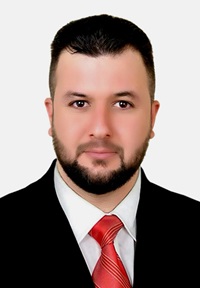
An intellectual cultural symposium on diagnosis and solutions.
In implementation of the strategy to combat violent extremism leading to terrorism for the year (2024-2025), the Psychological Counseling and Educational Guidance Unit at the College of Basic Education in Haditha held a seminar on this blessed scientific day on Wednesday, corresponding to: 10/16/2024, a cultural and educational guidance seminar entitled:
(Diagnosing behaviors indicative of extremism leading to terrorism and promoting moderate discourse), in cooperation with the units of employment and rehabilitation and women's affairs at the college.
The seminar was presented and moderated by Prof. Dr. Muhammad Awaid Al-Sayer from the Department of First Grades Teacher, who spoke about the meaning of moderation, the history of tolerance, and the rejection of intellectual extremism in all its aspects.
The first study of the symposium was presented by Assistant Professor Dr. Ahmad Mahmoud Jumaa Al-Hiti, Head of the Department of Arabic Language, and dealt with examples from the biography of the Prophet (peace be upon him) and his companions on the principles of tolerance, peaceful coexistence, and rejection of extremism.
The other study of the symposium was by Prof. Dr. Mazhar Abdul Ali, Head of the Department of Arabic Language, and dealt with the history of intellectual extremism, its causes, and ways to address it in all sects of society.
The symposium concluded with a number of recommendations, the most important of which are:
1. Reading the biography of the Prophet (peace be upon him), the biographies of his companions and the righteous predecessors and understanding the connotations of tolerance and moderation and applying them.
2. Accepting the opinion and the other opinion on any of life's issues and issues, regardless of the other person and his culture.
3. Eliminating behaviors indicative of intellectual extremism such as isolation, emptiness, and bad companions, escaping to reading and spending time with honest companions with good morals.
4. Organizing introductory seminars in state departments







